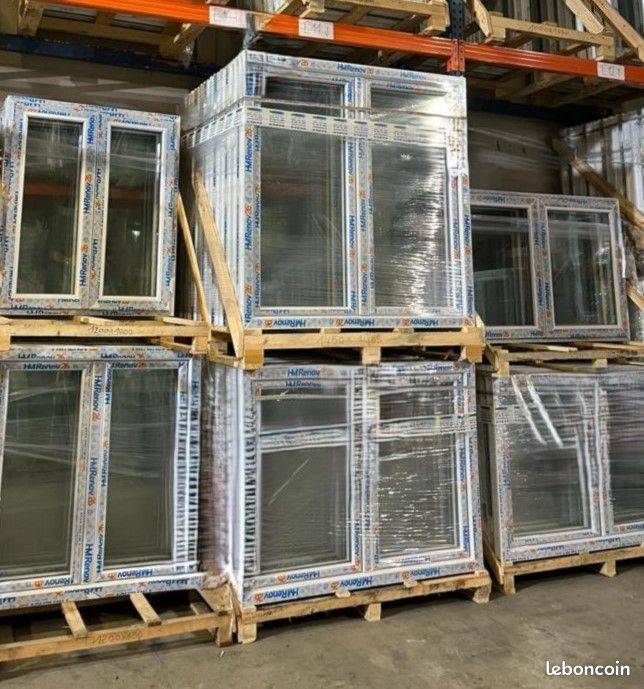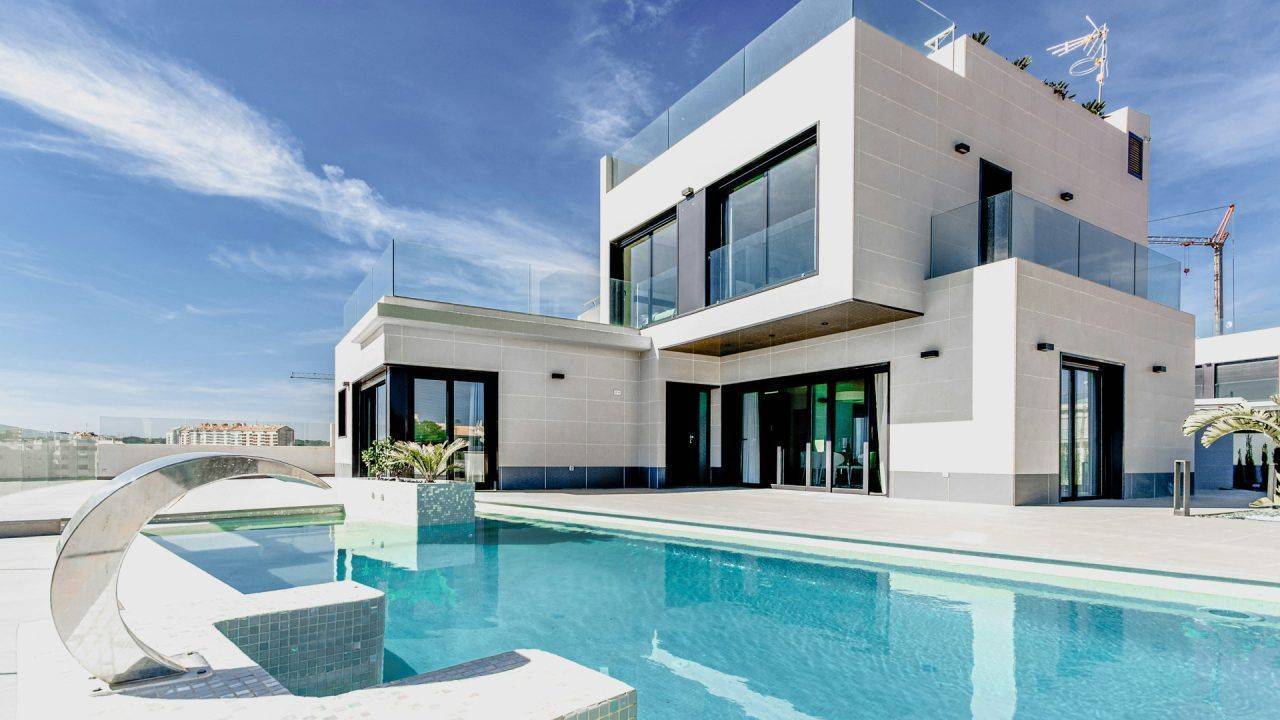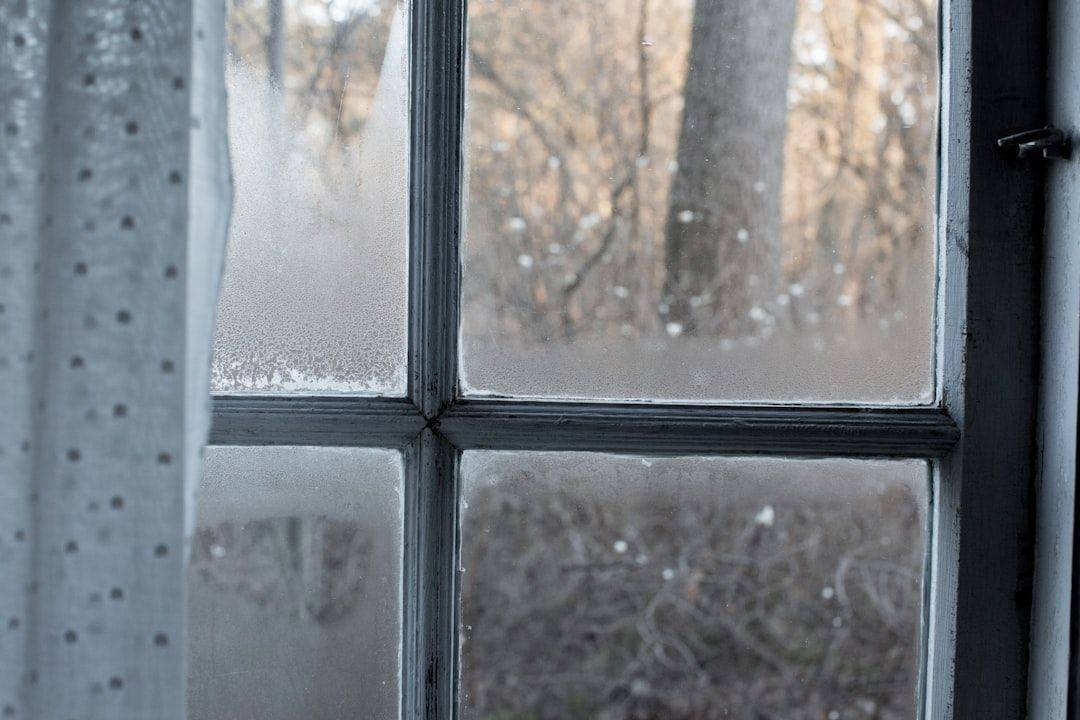IN BRIEF
|
With increasing environmental concerns and the need for energy efficiency, choosing ecological windows is essential. Ecological carpentry is based on environmentally friendly and efficient materials, such as drink or thealuminum with thermal break. This practical guide will guide you in the selection of windows suited to your home, providing you with information on materials, insulation performance and the criteria to consider for a sustainable investment. Windows play a crucial role in the thermal regulation of a home, so it is essential to choose those that best meet your needs while contributing to the preservation of our planet.
Choosing ecological windows is a key step in improving the energy efficiency of your home while respecting the environment. The materials available, thermal and acoustic performance as well as the impact on sustainability are essential elements to take into account. This guide will help you make the best window choice, covering the pros and cons of different options.
Benefits
Renewable materials
Wooden windows are often considered ecological due to their renewable nature. Made from sustainable resources, they also offer excellent thermal insulation. Additionally, some thermally broken aluminum options combine the durability of aluminum with high-performance insulating characteristics.
Energy performance
Eco-friendly windows are designed to reduce energy consumption. Thanks to insulation coefficients optimized, they reduce heat loss in winter and maintain coolness in summer. It is essential to check the thermal performance, such as the Uw coefficient, which must be less than or equal to 1.3 W/m².K for good insulation.
Maintenance and durability
Materials selected for ecological windows often offer ease of maintenance. For example, PVC and aluminum windows are extremely weather resistant and require little maintenance. Wood, although requiring regular maintenance, offers impressive durability when properly treated.
Disadvantages
Initial cost
The price of eco-friendly windows can be higher compared to traditional options like standard PVC. Although the initial investment is larger, it is important to consider the long-term energy savings and positive impact on the environment.
Performance variability
Not all materials are equal in terms of performance. For example, some PVC windows may offer good value for money, but others may suffer from poor sound insulation insufficient, which can harm interior comfort. Thus, it is crucial to evaluate the available options and learn about the specific characteristics of each material.
Environmental impact of manufacturing
Although materials like wood are generally considered environmentally friendly, their provenance and manufacturing methods must be taken into account. Illegal or unsustainable logging practices can compromise the eco-friendly aspect of your choice. Always check the origin of materials and favor those that meet strict environmental standards.
Choosing ecological windows is an essential step in improving the energy efficiency of your home while respecting the environment. This guide offers an overview of available materials, energy performance standards, as well as advice for selecting joinery suited to your needs.
The materials to favor
When selecting ecological windows, the choice of materials is crucial. Among the dominant options, drink, L’aluminum and the PVC particularly attract attention. Each material has its own characteristics that influence the durability, aesthetics and energy efficiency of windows.
Wood: a traditional and ecological material
THE drink is often praised for its natural insulating capacity and its durability. It is a renewable material that, when properly maintained, can last for decades. In addition, the origin of the wood must be verified, preferring species from sustainably managed forests. To explore the different types of wood windows available, check out this link: different types of wooden windows.
Aluminum: a modern and efficient choice
Aluminum is synonymous with modernity and resistance. Thanks to the technology of thermal break, it offers excellent energy performance, while being recyclable. Its lightness and ability to resist bad weather make it a preferred choice in certain contemporary constructions.
PVC: good value for money
THE PVC is often chosen for its competitive price-quality ratio. Although it is not a renewable material, it can be recycled and has good insulation performance. For sustainable use, it is essential to select PVC windows guaranteeing good durability in order to limit their long-term environmental impact. For practical advice on PVC maintenance, visit this link: maintenance of PVC windows.
The importance of energy performance
Energy performance is a key criterion in choosing your windows. To evaluate this performance, several parameters must be taken into account, such as the coefficient Uw which measures thermal insulation. The lower this coefficient, the better the thermal insulation of the window. For windows emitting optimal performance, it is recommended to opt for a Uw ≤ 1.3 W/m².K.
Glazing and its specificities
The type of glazing also plays an essential role in energy performance. Double or triple glazed windows provide better sound and thermal insulation. Choosing glazing suited to your environment can significantly reduce your energy needs.
Manufacturer’s choice
It is crucial to choose a reputable manufacturer for your windows ecological and efficient. Check the insulation certifications of its products and look for ranges offering windows that meet current standards. Local manufacturers can also eliminate the environmental impact of transportation.
Conclusion on the importance of ecological windows
Opting for eco-friendly windows is not only a wise decision environmentally, but it also contributes to significant energy savings in the long term. By choosing the right material and the right manufacturer, you put all the chances on your side to create a durable and comfortable home.
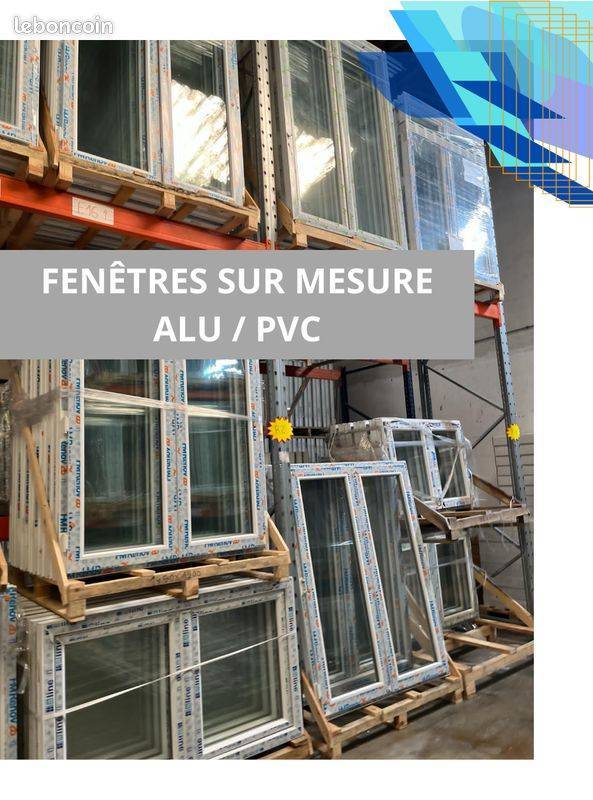
Choosing ecological windows is essential to improve the energy efficiency of a building while respecting the environment. This handy guide will provide you with advice on materials, features to look for and best maintenance practices to ensure your windows contribute to a sustainable home.
The materials to favor
For environmentally friendly windows, the first criterion is material. The windows in drink are often considered a traditional and ecological choice, thanks to their renewable nature and their better thermal insulation performance. In addition, wooden windows help reduce the carbon footprint of homes.
Another material to consider isaluminum with thermal break. This type of window combines durability and performance. Although it is less insulating than wood, its longevity and strength make it an optimal choice for many projects. There are also solutions in PVC, particularly attractive for their quality/price ratio and their low maintenance requirements.
Energy performance of windows
There energy performance windows is a key aspect to look at. Choose windows with a low thermal transmittance (Uw), ideally less than 1.3 W/m².k. This criterion indicates the windows’ ability to retain heat, which can significantly reduce your energy bills.
In addition, glazing plays a fundamental role in energy efficiency. Double or triple glazing offers better thermal and acoustic insulation. Don’t forget to check the solar transmission coefficient (Sw) which should be greater than 0.3 to allow a good supply of light while minimizing thermal losses.
The criteria for ecological joinery
THE ecological joinery are distinguished by several criteria. Firstly, they must be made from renewable materials and, ideally, produced in France or in nearby areas. This reduces the ecological impact linked to transport.
Then, favor the sustainability. A quality window must have a long lifespan, thus contributing to a reduction in waste. Also check if the manufacturer offers suitable guarantees to ensure the longevity of your investments.
Window maintenance and durability
To guarantee the longevity of your ecological windows, a good interview is essential. Wooden windows require regular treatment to prevent damage from moisture and insects. Use ecological products that respect the environment.
As for PVC and aluminum windows, their maintenance is generally simplified. A simple cleaning with soapy water may be enough to maintain their appearance and performance if these materials are of good quality.
Weight of windows in renovation
When considering a renovation, choosing eco-friendly windows can have a significant impact on the energy efficiency of your home. You can, for example, opt for custom-made windows that adapt perfectly to your openings, guaranteeing optimal insulation. These custom windows also allow you to maximize resource usage while meeting your specific needs.
Finally, for more details on the impact of wooden windows on thermal insulation, consult this article: The impact of wooden windows on thermal insulation.
| Criteria | Details |
| Materials | Drink, Aluminum, PVC – favor those to thermal break |
| Energy performance | Choose a coefficient Uw ≤ 1.3 W/m².k and sw ≥ 0.3 |
| Sustainability | Favor materials renewable and those of manufacturing French |
| Sound insulation | Opt for a sound insulation coefficient adapted to your environment |
| Interview | Windows in drink require regular maintenance; PVC easier to maintain |
| Glazing options | Favor low-emission double glazing for better thermal insulation |
| Personalization | Custom windows available to suit all architectural styles |
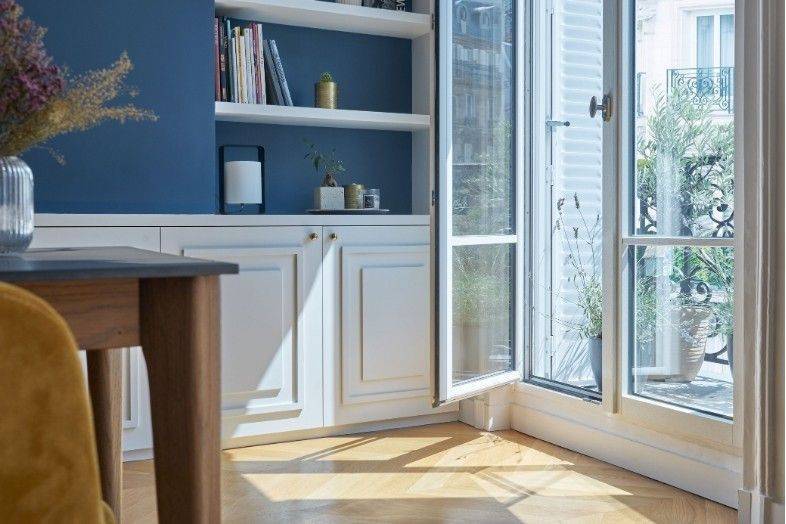
Testimonials on the Practical Guide to Choosing Ecological Windows
As an environmentally conscious homeowner, I found the practical guide to choosing eco-friendly windows incredibly useful. I learned that windows drink are not only renovable but also offer excellent thermal insulation. The selection process is now much clearer.
What particularly struck me in the guide was the emphasis placed on the importance of energy performance. With this information, I was able to compare the different options, including windows in aluminum with thermal break, which have proven to be a durable and aesthetically pleasing solution.
I was skeptical about windows in PVC, but the guide provided valuable details on their value for money and performance. With simple advice, I was able to evaluate the pros and cons, which made my decision easier.
The comparison of window types was very enlightening. Thanks to this guide, I learned that the choice also depends on my environment and that the coefficient ofsound insulation was essential for optimal comfort. The details on each of the materials helped me understand the specifics to consider for my home.
The section oninterview windows is a considerable asset. I discovered simple methods to keep my windows in good condition, which ensures increased longevity. This allows me to enjoy my facilities while respecting the environment.
In summary, this practical guide is an essential tool for anyone wishing to invest in ecological windows, combining sustainability, efficiency energetic and aesthetic. Each piece of advice is relevant and clearly guides you towards a thoughtful choice.
Choosing ecological windows is a key element in improving the energy efficiency of your home while respecting the environment. In this guide, we will explore the different materials available, the criteria to take into account to guarantee good energy performance, as well as the best maintenance practices for your windows.
Choosing the right material
Wooden windows
THE drink is a traditional and ecological material, often acclaimed for its performance in thermal insulation. In addition to being a renewable material, it offers excellent durability if maintained correctly. Opt for wood from sustainably managed forests to ensure eco-responsible manufacturing. However, wooden windows require regular maintenance to prevent deterioration and maintain their effectiveness.
Aluminum windows
The windows in aluminum has thermal break are also an option of choice. They have a light and resistant frame, capable of supporting large glazed surfaces while maintaining excellent thermal performance. In addition, this material is recyclable and has a long lifespan, making it a good choice from an ecological point of view.
PVC windows
THE PVC is known for its attractive price-quality ratio. Although it is not a natural material, it is recyclable and offers good thermal performance. It is important to choose French-made PVC windows, if possible, to ensure their quality and a lower carbon footprint due to transport.
Energy performance
When choosing windows, it is crucial to pay attention to their energy performance. Look for clues like the coefficient Uw, which measures thermal insulation, and make sure it is less than 1.3 W/m².K to ensure good energy efficiency. Quality glazing, such as double or triple glazing, can also improve the sound and thermal insulation of your windows.
Criteria for choosing ecological windows
For a window to be considered as ecological, it must meet several criteria:
- Use of materials sustainable and renewable.
- French or local manufacturing to reduce the carbon footprint.
- Good performanceinsulation thermal and phonic.
- Possibility of recycling the product at the end of its life.
Maintenance of ecological windows
Maintenance of wooden windows
Wooden windows require regular maintenance such as varnishing or painting every 5 to 10 years to preserve their condition. Check the seals and replace them if necessary to prevent air infiltration.
Maintenance of aluminum and PVC windows
Aluminum windows and PVC require less maintenance, but it is good to do annual cleaning to remove dirt and debris. Also check the opening and closing systems to ensure optimal operation.
Choosing and maintaining eco-friendly windows is not only a matter of aesthetics, but also of environmental impact and long-term energy savings. By following these recommendations, you will contribute to a more sustainable and energy-efficient home.
